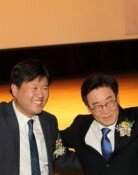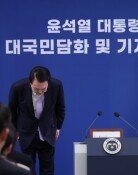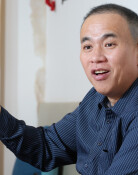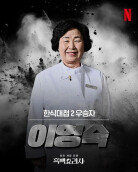Dignity of political language
Dignity of political language
Posted September. 02, 2016 07:17,
Updated September. 02, 2016 07:32
The Acropolis in Athens, a city state from ancient Greece, is a birthplace of Western politics. Citizen in Athens had developed a full-blown democracy by gathering and discussing in the Acropolis. Not only politics but also trials and philosophy have evolved through their dialogue and conversation, which is why speech writers as well as orators had enjoyed enormous popularity back then. Demosthenes, a famous Greek statesman from the 4th century BC was praised as the best among others. Seeking asylum when Athens was defeated by Macedonia, he expressed his successful past by saying, “Asked to choose between politics and death, I would choose death.”
When there had been few radios and televisions in Korea, eloquence was deemed as one of the major qualifications as a politician. In 1950s, the late President Kim Dae-jung ran a private oratory school called Dongyang Oratory Academy. Full of confidence since his years in Mokpo Commercial High School, the former president had practiced a basic sense of voice pitch, gesture and writing speech script. Kim Sang-hyeon met him at the academy for the first time. Having dropped out of night high school, Kim was able to overcome his lack of educational background and become a lawmaker all thanks to his excellent eloquence.
The late President Kim Young-sam who had come to the second place at a speech contest in his sophomore year in Seoul National University used to pronounce “widaehan (meaning “great” in Korean)” as “idaehan” and “gyeongje (meaning “economy”)” as “gaengje,” making his audience burst out laughing. However, he had kindled Korean people’s passion for democracy, by saying, “Even if you wring the rooster’s neck, dawn still comes.” Visiting Japan in 2006 when President Park Geun-hye was the chairperson of the Grand National Party, she was asked about the then hottest pending issue of Dokdo Island. “There’s nothing to be difficult or complicated. Dokdo is the territory of Korea. What Japan needs to do is to admit the fact,” she responded, making a Japanese reporter who asked the question feel embarrassed.
Yun Tae-yeong, a former speech secretary for the late President Roh Moo-hyun, has published a book titled “How Presidents Speak.” President Roh was praised as “master of discussion,” while renowned Korean poet Go Un criticized him by saying “What President Roh says is not the language of the president.” Today, discussion rather than eloquence is more important, and communicating through social network services is critical for politics. Sadly, however, Korean politics has begun to lose its dignity by rampant insults, rough words and pointless answers, which could easily be heard from the mouths of lawmakers.







